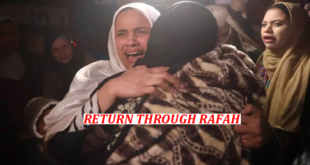25-05-2024
UNITED NATIONS: United Nations member states have voted to declare 11 July an annual day of remembrance for victims of the 1995 Srebrenica massacre.
Germany and Rwanda’s proposal passed despite furious lobbying by Serbia against the resolution. President Aleksandar Vucic claimed it was “politicised”, and risked branding Serbia and Serb people as collectively responsible for genocide.
 Ultimately, 84 member states voted in favour of creating an “International Day of Reflection and Commemoration of the 1995 Genocide in Srebrenica”. Serbia may note that this was outnumbered by the 19 votes against and 68 abstentions but the greater satisfaction will be felt by the relatives of more than eight thousand Bosniak Muslim men and boys who died in the massacre. Bosnian-Serb forces systematically murdered them, after they overran peacekeepers who were supposedly protecting the UN “safe area” of Srebrenica in eastern Bosnia.
Ultimately, 84 member states voted in favour of creating an “International Day of Reflection and Commemoration of the 1995 Genocide in Srebrenica”. Serbia may note that this was outnumbered by the 19 votes against and 68 abstentions but the greater satisfaction will be felt by the relatives of more than eight thousand Bosniak Muslim men and boys who died in the massacre. Bosnian-Serb forces systematically murdered them, after they overran peacekeepers who were supposedly protecting the UN “safe area” of Srebrenica in eastern Bosnia.
Directed by Bosnian-Serb military leader Ratko Mladic, the troops separated the men and boys from their wives and mothers, sisters and daughters. Most were never seen alive again.
The horror did not end with the killings. Over the following months, in an effort to cover up the scale of the massacre, Bosnian-Serb troops dug up the mass graves of their victims. They then scattered the remains across multiple sites.
As a result, body parts were dispersed – making identification difficult. Some relatives have been waiting for decades to bury their family members. But 29 years on, most families have been able to bury at least some remains at Potocari Cemetery, close to the site of the massacre.
The International Commission on Missing Persons pioneered the DNA technology to help identify more than seven thousand victims. It issued a statement commending the UN resolution.
 “This solemn decision represents a significant milestone in acknowledging and honoring the memory of the victims and survivors of the Srebrenica Genocide,” it wrote, adding that the day of remembrance would act as “a poignant reminder of the enduring impact of genocide on individuals, families, and communities”.
“This solemn decision represents a significant milestone in acknowledging and honoring the memory of the victims and survivors of the Srebrenica Genocide,” it wrote, adding that the day of remembrance would act as “a poignant reminder of the enduring impact of genocide on individuals, families, and communities”.
This is not how Serbia’s government sees it. During the debate in the UN General Assembly, President Vucic warned that voting in favor would “open Pandora’s Box” and lead to more resolutions, relating to other instances of genocide.
He hinted that Serbia might itself make such a proposal, pointing out there had never been a UN resolution addressing Serb victims of genocide such as those murdered by the Nazi-allied regime in Croatia during the Second World War.
Vucic insisted that the Srebrenica resolution was “not about reconciliation, not about memories, but about something that will open new wounds, not only in our region but also in this hall” even in Serbia, however, some wonder why their government had been so strongly opposed to the resolution. After all, the proposal explicitly stated that only individuals had been convicted of genocide, and that guilt “cannot be attributed to any ethnic, religious or other group or community as a whole”.
In 2007, the International Court of Justice ruled that genocide was committed at Srebrenica, but found that Serbia was not directly responsible or complicit. Judges did, however, rule that Serbia had failed to prevent the massacre. Three years later, Serbia’s National Assembly passed a resolution condemning the massacre and apologizing that more had not been done to prevent it.
In 2015, Vucic at that point prime minister paid his respects in Srebrenica on the 20th anniversary of the massacre. Some protesters threw bottles and stones at him, but he promised he would “continue with (his) policy of reconciliation”. (Int’l Monitoring Desk)
 Pressmediaofindia
Pressmediaofindia




